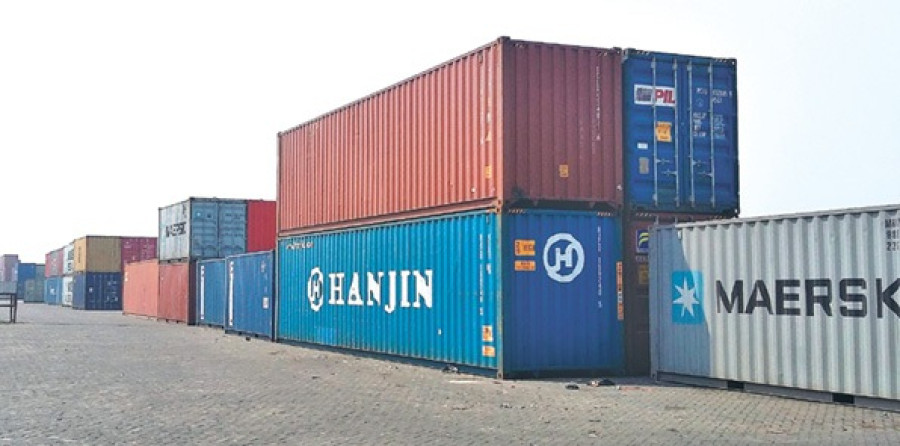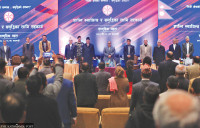Money
Shipping agents waive off around Rs3 billion fees
Shipping agents who deliver goods imported from countries other than India have waived off nearly Rs3 billion in detention and demurrage charges Nepali importers were subjected to pay for the period of the Indian embargo, according to Nepal Freight Forwarders’ Association (Neffa).
Shankar Acharya
Shipping agents who deliver goods imported from countries other than India have waived off nearly Rs3 billion in detention and demurrage charges Nepali importers were subjected to pay for the period of the Indian embargo, according to Nepal Freight Forwarders’ Association (Neffa).
The charges had been levied after the importers failed to return containers to India’s Kolkata port after delivering goods to Nepal in the stipulated time. Nepali importers have to return the containers within 21 days after they leave the Kolkata port. If It the importers fail to do so, they have to pay $30-50 per day in detention and demurrage charges.
During the embargo, thousands of Nepal-bound cargos had stuck at the Kolkata port and bordering Indian towns for months. Neffa said Nepali importers were subjected to pay more than Rs6 billion in such charges to over two dozen shipping companies for the blockade period.
Rajan Sharma, former president of Neffa, said the shipping companies have waived off about Rs2.75 billion in the charges following lobbying by Neffa, Federation of Nepalese Chambers of Commerce and Industry (FNCCI) and Birgunj Chambers of Commerce and Industry (BCCI). “The task once considered impossible has been made possible,” said Sharma, who is also the chairperson of FNCCI’s Road Transport and Transit Committee.
A team representing these three institutions had held talks with the shipping companies in January in Kolkata.
“Initially, the shipping companies were reluctant to waive off the charges,” he said, adding some companies had even stopped delivering goods to Nepal for not clearing the charges. “Now, all of them are ready to give maximum waiver considering Nepal’s special case during the embargo period.
For example, Hanjin Shipping Company, which had initially refused to entertain Nepal’s proposal for the waiver of the charges, has agreed to waive off up to 70 percent of the amount, according to Neffa.
APL, another shipping company, has not charged more than IRs350,000 demurrage charges even if the actual fee is much higher. French shipping company—CMA CGM Group—extended the number of days for the containers to return to Kolkata port to 76 days from normal 21 days, according to Neffa.
BCCI President Pradeep Kedia said the waiver of detention and demurrage charges has given much-needed relief to traders who were hit hard by the rise in domestic transportation fares. “We had to pay double the actual fare for transporting goods from Birgunj to Kathmandu,” he said. “Even domestic transport and warehouse companies didn’t give any waiver on their fees and fares.”
The transport fare to deliver goods from Birgunj to Kathmandu had increased to Rs140,000 per truck from Rs70,000 during the embargo.
Sharma complained government-run Nepal Transit Warehouse Company decided not to waive off charges it imposed on Nepali importers for housing goods in its warehouses in India. Around 36,000 cargo containers arrive in Nepal from third countries every year.




 18.12°C Kathmandu
18.12°C Kathmandu













%20(1).jpg&w=300&height=200)
